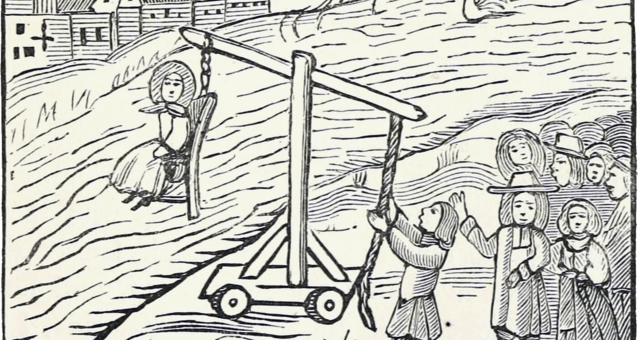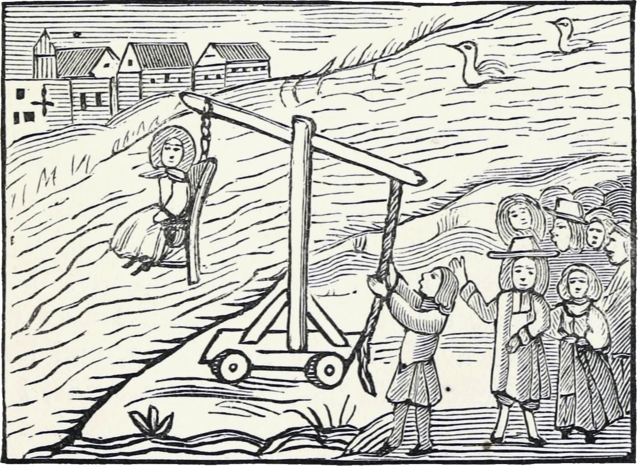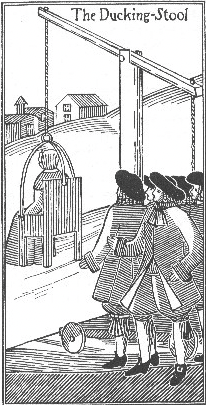
When it comes to barbaric punishment, few devices carry the grim fascination of the cucking stool, a medieval mechanism designed to discipline and humiliate.
Known by various names including the ducking stool, tumbrel, and even the choking-stool, this device has its roots deep within the punitive Christian culture of medieval England, particularly during the 16th and 17th centuries.

The cucking stool was essentially a wooden chair attached to a long pole or a lever, used primarily to punish women accused of being scolds—those deemed excessively argumentative or disruptive.
The chair would be positioned over a river or a pond, and the accused would be repeatedly dunked into the cold water. This act of public humiliation was not just a physical punishment but a social spectacle, intended to shame the woman into conformity.

This form of discipline was often directed at women whose voices were considered too loud or whose words strayed too far from the submissive ideal. In an era when the silencing of women’s voices was a Christian mandate, the cucking stool served as a stark warning to those who dared to defy the norms.
Beyond its use for scolds, the cucking stool was sometimes employed for other offenses such as witchcraft, adultery, and even for tradespeople like brewers and bakers who failed to adhere to regulations. The punishment could be severe, involving multiple dunkings based on the gravity of the accused’s transgressions.
The historical records, including those from manorial courts and town corporations, reveal a society deeply invested in maintaining order through public punishment.

For instance, a record from the Manor of Edgeware in 1552 criticized the inhabitants for not maintaining a tumbrel and cucking stool, highlighting the institutionalized nature of these punitive measures.
By the late 17th century, the use of the cucking stool began to wane, partly due to growing opposition against such public spectacles of punishment. Its decline marked a gradual, though incomplete, shift in societal attitudes towards punishment and public shaming.

